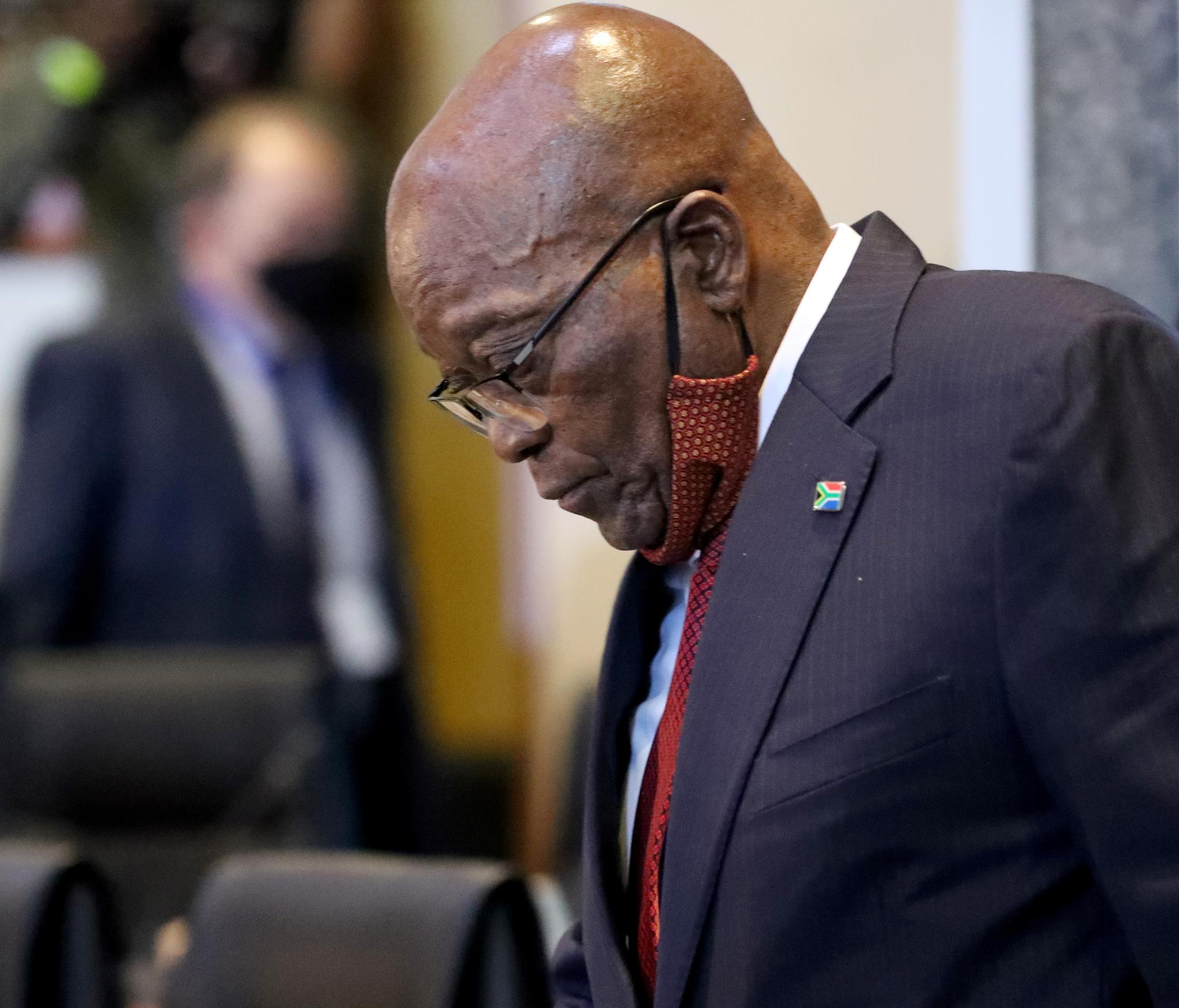Al-Ahram leads off with front-page coverage of South African President Jacob Zuma’s official state visit to Cairo. The main article is fairly proforma: President Mubarak and Zuma discuss issues of bilateral importance, the dreaded “regional developments,” and both hope the upcoming Southern Sudan independence referendum will proceed without any serious difficulties.
The only real deviation from the time-honored Al-Ahram presidential coverage template is in the picture, which dispenses with the usual "two leaders chatting on gilded chairs" motif for a shot of the two presidents posing together with their first ladies. It’s actually a hilarious picture–Zuma’s wife looks like she either hates getting her picture taken or her shoes were killing her, because her body language is deeply uncomfortable.
Alongside the Zuma visit coverage at the top of Al-Ahram’s front page is news of pending alterations to the elections laws. President Mubarak has issued a decree setting out adjustments to the electoral regulations with an eye on ensuring “political rights,” whatever that means.
This wonderfully vague concept of “political rights” seems to be one of the government’s new buzzwords and gets repeated multiple times. Other details from the story: The ruling National Democratic Party will hold its big annual convention from 9-10 November and the details of the new parliamentary quota system for women are coming into sharper focus. For the first time, 64 seats have been added to the People’s Assembly especially for female parliamentarians. The article also states that citizens on election day will vote in a special separate box to vote for who should fill the female parliamentary seats.
Privately owned Al-Shorouk leads off with a different kind of electoral talk. According to the anchor front-page article, former US president Jimmy Carter has “joined the list of personalities and international institutions calling for the Egyptian government to allow the participation of monitors in the coming parliamentary elections.”
Carter’s announcement isn’t exactly a surprise; the former president is deeply involved in election monitoring issues and his Carter Center oversaw the last Palestinian parliamentary elections and is gearing up for next year’s Sudan referendum. The article quotes an anonymous female Carter representative as saying that the former governor of Georgia is asking for permission to deploy 25 election monitors for the Egyptian parliamentary elections scheduled for 29 November. But given the government’s defiant stance on the issue so far, the Carter Center source isn’t expecting that monitoring will be allowed to take place.
Elsewhere on the Al-Shorouk front page is news that 12 satellite channels have been shut down and another 20 given formal warnings for broadcasts that the government says incite religious tensions.
Many of the affected channels are of the 24-hour-talking-sheikh variety, and they include Al-Safa, Al-Khajigeeyia and Al-Rahma. Some of the other channels targeted for closures or warnings weren’t dabbling in religious interpretation but were selling medical devices that hadn’t been approved by the Ministry of Health.
Minister of Information Anas Al-Fiqqi said the closures came after intense study of the channels’ content, and are designed to protect the public good and preserve religious harmony.
Over at Al-Dostour, the post-Ibrahim Eissa era continues, and the new regime seems to be realizing that they have to keep hitting the government hard to fend off accusations that the newspaper has lost its fire without Eissa. A front-page column by Ayman Sharaf is bluntly titled, “The president and the collapse of the state.”
Sharaf writes that Mubarak is in the unique position of “ruling a country for 29 years without any real oversight of his decisions.”
Sharaf lists the ails of modern Egypt, which is says is falling behind “politically, economically, academically” and so on. But he also backs away from his dramatic headline halfway through the column to state: “No one really thinks the Egyptian state is collapsing, but it’s our duty to be cautious.”
Egypt's papers:
Al-Ahram: Daily, state-run, largest distribution in Egypt
Al-Akhbar: Daily, state-run, second to Al-Ahram in institutional size
Al-Gomhorriya: Daily, state-run
Rose al-Youssef: Daily, state-run, close to the National Democratic Party's Policies Secretariat
Al-Dostour: Daily, privately owned
Al-Shorouk: Daily, privately owned
Al-Wafd: Daily, published by the liberal Wafd Party
Al-Arabi: Weekly, published by the Arab Nasserist party
Youm7: Weekly, privately owned
Sawt al-Umma: Weekly, privately owned




